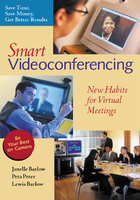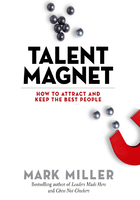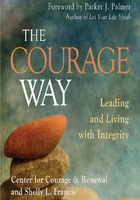Developing Your Core Competencies
Leadership. . .rests on core competencies that meld market or customer value with a special ability of the producer or supplier. [20]
The concept of core competencies, originally developed at the organizational level, is increasingly being applied to individuals. Core competencies—what an organization can do better than others, or abilities that provide a particular competitive advantage—have been part of the business world's vocabulary since the phrase was introduced in the early 1990s. The term is associated with the authors Gary Hamel and C. K. Prahalad, first from their 1990 article “The Core Competencies of the Corporation” in the Harvard Business Review, and later in their book Competing for the Future.
While acknowledging the contributions of these authors and the idea of core competence, Drucker traced the principle back to his own work. In his 1995 book Managing in a Time of Great Change, Drucker said that organizations required “strengths analysis” (a term he coined in his 1964 book Managing for Results) to take advantage of opportunities. In the preface to Competing for the Future, Hamel and Prahalad pay tribute to Drucker, “whose wisdom has benefited our work enormously.”[21]
For our purposes, the concept of core competence can be expanded to include the development of individual excellence. Such a focus can help you carry out the kind of life that leads to the highest achievement and personal satisfaction. Applying your competencies allows you to serve yourself as well as other people and society in general. Being really good at something—providing a high-quality service or product—has to be at the core of what you do, backed by a solid set of personal values.
What do you do so well that it gives you your best chance to contribute, at work and outside of it? Consider what is unique about what you do, and in what areas you excel. Some examples might be writing, communication, or selling. These are often abilities that can be applied to a variety of jobs or volunteer positions. Drucker said that, in his experience, few people could articulate their areas of strength. In this chapter, we'll look at a toolbox of techniques and concepts to help develop and strengthen your core competencies. They require work, thought, and concentration. Drucker cared deeply about his readers, but he didn't pamper them when offering his counsel. Sometimes you have to make tough, even painful decisions. For instance, in using the tool of systematic abandonment, which is discussed later in this chapter, you may find that as you regularly consult your Total Life List, you are not giving the proper time to activities within your core competencies. You will then need to make a decision on what other activities must be stopped.
Workmanship, Excellence, and Diligence
This is the first thing I have learned, during these fifty years of working with, and studying, institutions and the people who manage them: workmanship counts.... Few tasks in any discipline require genius. But all require conscientiousness.[22]
THE FIRST ITEMS IN your toolbox are workmanship, excellence, and diligence; these are bedrock qualities for getting the most out of your core competencies.
Drucker elaborated on the idea of workmanship during a speech he gave at the Claremont Graduate School (now Claremont Graduate University) when the management school was named after him, on October 21, 1987. In the speech, and eight years later in his book Drucker on Asia, he described the story of Phidias, “the greatest sculptor of ancient Greece,” whose creations “still stand on the roof of the Parthenon in Athens.”[23] As Drucker remembered the story, Phidias presented his bill to the Athenian accounting office, which protested having to pay for work on the back of the statues, which could not be seen by people on the ground. Phidias insisted that although people could not see the backs of the statue, the Gods could. At face value, this means that doing high-quality work is important even if it's not obvious to everyone. It doesn't mean charging for work that is not important. The big takeaway here is that you should develop inner standards of excellence that are high, yet attainable. You never know who is going to see and judge your work. It's best for all concerned if you've delivered something of the highest quality of which you are capable.
Drucker was considered a genius, but he was also hardworking, diligent, and determined, attributes that anyone can emulate. He approached his work in an enthusiastic, open-minded, and receptive way. He stressed the power of observation, attention to detail, and having a radar for determining what is most relevant about any given situation or piece of information. If you want to advertise or market your work, you must start from a basic level of, if not excellence, then at least very strong competence. People will only want your services if you can deliver on your promises. You can market cleverly all you want, but you're unlikely to have repeated, ongoing calls for your services or products if people are disappointed by the quality of your work.
ASK YOURSELF
Considering Drucker's example of Phidias and his statues, has a particular piece of workmanship inspired similar thoughts and admiration within me? Is there an equivalent to the Verdi opera experience, artistic or otherwise, in my life? What did I learn from it, and how did it change me?
Drucker strove not only for excellence, but also for the elusive goal of perfection. As we have seen, some of his personal self-management lessons came from his early life experiences. While he studied at Hamburg University in Germany, he attended the Hamburg Opera with low-priced student tickets. A performance of Verdi's Falstaff became a turning point in his life. He discovered the youthful-sounding opera had actually been written by the composer in his eighties. Drucker found out that Verdi had noted that although his lifelong pursuit of perfection always eluded him, he wanted to give it one more try. Drucker later vowed that these words would give him a guiding principle for his own life, especially if he reached an advanced age.
DRUCKER'S LIFE AND WORK
Drucker was powered more by success in his life than by the redemption of failure. He never wrote fiction again after his two novels failed to succeed. “I've learned to run with success and not worry too much about non-success,” he said. “You know there's an old saying ‘At first if you don't succeed, try, try, try again.’ It's wrong. If at first you don't succeed, try once more, and then try something else.”[24] There is a fine line between persistence and futility. It is not to be thought of as an ironclad rule, since the third time may be the charm in some situations. But we all have to consider how much time and effort we put into something before we realize it's not working and that the time has come to move on.
Achievement
Achievement is addictive.... The achievement that motivates is doing exceptionally well what one is already good at.[25]
A SENSE OF ACHIEVEMENT is the next tool. Your core competencies allow you to work toward meaningful achievements. The sense of achievement can be most pronounced in the realm of work, and it helps to express who you really are as a person. “Work is an extension of personality,” Drucker wrote. “It is achievement. It is one of the ways in which a person defines himself or herself, measures his or her worth and humanity.”[26] You can periodically assess whether or not the work you are doing really is an extension of your personality. If it's not, you can consider strategies for changing jobs, or the type of work you do.
Of course, work is not the only way to measure your worth or humanity. A couple of other potential areas of self-worth are:
image Your sense of generosity, whether through volunteering, mentoring, or other forms of giving to others
image What you accomplish in your outside interests—perhaps an achievement in sports or music—that takes time and effort but has nothing to do with work
With proper care, achievement is open to anyone. Drucker's tough-love approach comes into play with the following assessment: “Whenever I hear executives complain about the reactionary organization they work for, about how nothing can be done, about how stupid the boss is, I feel tempted to tell them: ‘Stop bellyaching about what you cannot do. What can you do?’”[27]
To get the most out of work and life, we would do well to follow Drucker's teaching and personal example of drawing on inner resources for accomplishment. “Knowledge workers,” he has written, “except at the very lowest levels, are not productive under the spur of fear; only self-motivation and self-direction make them productive. They have to be achieving in order to produce at all.”[28]There are many people who believe that management-by-fear is still too prevalent in our workplaces.
Drucker drew a distinction between achievement over a lifetime of good work versus the goal of making money for its own sake. “I've known quite a few people,” he said, “whose main goal was to make money. And they all made it. . . . If you are single-minded, focused on making money, you'll make money. And without exception, they were all utterly miserable. They reached that goal, and there was nothing left.”[29]The solution is to focus on what you do and the benefit it has not just for you, but for others. It doesn't mean that you won't make money—many of Drucker's followers are quite well off financially—but it does mean that the pursuit of money plays a subordinate role. “So, if your goal is to make money, I rather pity you,” Drucker said. “The people I have seen who were happy even after being successful are the people who want to leave something behind. A hospital that's working, a company that's working, whatever, or who are not money-focused, but achievement-focused, because that you're never finished with.”[30] If you lead a multidimensional life, you have to give enough thought to which areas—possibly built on your core competencies—you will give the most emphasis.
ASK YOURSELF
Do I give myself enough credit each day for the achievements I make, or do I take them for granted? What is a particular lesson learned from my early work experience that is so powerful that I will never forget it?
Drucker had a related concept that you might find handy when you have simultaneous competing tasks. Ask yourself what needs to be done rather than what you want to do. This can be applied not just to daily tasks, but to the larger areas of your life. There is often a discrepancy between what is easier or more pleasant to do, versus what really needs to be tackled. If what needs to be done is not within your core competencies, you can make some decisions on how to proceed. Can someone else do it better, such as through delegating or outsourcing? Would some investigating and learning on your part help a task become part of your core competencies, and, if so, with how much additional effort?
DRUCKER'S LIFE AND WORK
Drucker's time as a young journalist in Germany helped form his well-developed work ethic and informed his later work as an author. When he was twenty, in his first reporting assignment in Germany at the newspaper Frankfurter General-Anzeiger, he covered a criminal trial. When he returned from the court to write his story, the editor wanted to know the name of the prosecutor. Drucker hadn't found out this crucial detail, and was instructed to find out. He had to go to the man's home and wake him up to find out the name. Attention to detail, really paying attention to our life and work, is crucial. Drucker honed his powers of observation over the years. There is no reason that we can't follow his lead.
The Effective Use of Time
Learn to manage your time. The secret is not to do the five million things that do not need to be done and will never be missed.[31]
TIME MANAGEMENT IS AN important tool for leading a multidimensional life based on your core competencies. In The Effective Executive, Drucker set out a valuable framework for keeping track of your time. He advocated that at work you should write down everything you do and how much time it takes, so you can see how you really spend your day, as opposed to how you think you spend it.
You can go beyond that by listing what you do at work and outside of it, with rough guidelines for how much time you are spending on each activity. This exercise works only if you are ruthlessly honest with yourself. If you find you're spending several hours each day watching television or doing something else you find too passive, you can then decide to make changes. Doris Drucker said that neither she nor her husband watched television. Not everyone might want to go that far, but at least it is something that can be considered in terms of time expended versus benefit derived.
ASK YOURSELF
Do I use a time management system now? Have I looked into systems in books like David Allen's Getting Things Done or Stephen Covey's The 7 Habits of Highly Effective People? At first glance, what activities might I have to give up in order to take on new dimensions in my life?
To lead a satisfying life in more than one world, you'll have to create the time to accomplish what you want. You'll have to give the proper hours to the proper activities. If you have one main job, you'll have to consider how you will carve out the remaining hours of each week to exercise your spirit of generosity, develop a second career, or pursue outside interests.
DRUCKER'S LIFE AND WORK
Drucker's output was prodigious, yet he was selective with his time. He could have responded to increasing numbers of opportunities. He could have taken more consulting assignments by creating an organization in his name. But then most of the work would not have been done by him, and he felt that he worked best on his own. In a similar manner, he could have hired research assistants and cranked out even more books and articles. But at some point he knew that quality would be diluted and his work would suffer. People would not be getting 100 percent Drucker anymore. As you apply time management in your own life, it doesn't mean you can't create an organization in your name, or hire people to help you. It does mean that you should think about how you can best express your talents and ideas, and how much you want to, or are able to, involve other people in the process.
Priorities
A decision therefore has to be made as to which tasks deserve priority and which are of less importance.[32]
WORKING ON ACHIEVEMENTS IS easier if you can prioritize your work and other aspects of your life. In 2005, Drucker said, “My order of priorities is: writing comes first, teaching next, and consulting last.”[33] However, he gave slightly different answers at other times in his life. Three years earlier, he said, “If you want to diagram my work, in the center is writing, then comes consulting, then comes teaching. I've never been primarily an academic. I like to teach because that's the way I learn.”[34] There is no rule about how often you should reevaluate your priorities. Periodically checking, adding to, and subtracting from your Total Life List will give you a better sense of where you stand, and where your priorities are at any given time.
Drucker listed his priorities for allocating his time, but that is only one part of priority setting. Another is how you handle your daily tasks. Taken together, setting priorities is a crucial activity for anyone living in more than one world. You have many different people and activities competing for your time. If you are unclear on your daily and long-range priorities, you can waste time on things that ultimately aren't that important or satisfying.
ASK YOURSELF
Have I ever considered the various areas of my life and then prioritized them as Drucker did? When was the last time I aimed high, at something that would make a difference, and what happened as a result?
In The Effective Executive, Drucker set out four rules for priority setting, which can be briefly summarized as:
1. Focus on the future, not the past.
2. Focus on opportunities, not problems.
3. Don't climb on bandwagons.
4. Forget safe options; aim high, at “something that will make a difference.”[35]
These four rules dovetail with his overall message, that the future is based on today's actions and decisions, and that to have a satisfying future, you can't be overwhelmed by your problems, or let them take up an inordinate amount of your time and money.
DRUCKER'S LIFE AND WORK
Around the time that The Daily Drucker was published, Drucker said he developed a framework after finishing an assignment or project. Tapping into the power of self-questioning, he would first ask himself what needed to be done now, and the answer would lead to something new. He said that was not the difficult part; what was difficult was the next question: determining priorities. “That takes me quite awhile as a rule,” he said, “and a lot of agonizing. But it has to be asked and has to be answered.” [36] If someone of his achievements and stature felt that way, it should come as no surprise that the rest of us might have trouble dealing with setting priorities.
The Power of Self-Reflection
I think a more important lesson I've learned is that I need to look back every year on the results of the year and hold them against my expectations.[37]
SOMETIMES YOU NEED TO get away from the daily grind to focus on your core competencies and purpose in life. Many people find value in activities such as personal retreats, Sabbaths, and meditation. Daily activity is too hectic and pressured to do much planning and reflection. Drucker believed that thinking is hard work and it is devalued in our fast-paced society. The main value of a discipline like meditation is that it clears your mind to make it easier to consider what really matters in your life. Some people find similar values in yoga, walking, running, or spending time in nature.
Drucker said that other effective people he knew had similar regimens, which they undertook away from the workplace and its distractions. Microsoft's Bill Gates has made profitable use of what he calls “think weeks,” when he goes away for reading, reflection, and planning. The point is to have time built into your schedule to get away from work to think deeply about where you have been and where you are going.
ASK YOURSELF
Where and how could I get away from my daily responsibilities to begin engaging in self-reflection? How can this self-reflection relate to and help my annual performance review at work, where I am asked to review the accomplishments of the past year and plan my work goals for the next? How can it help me assess my personal goals?
Here are some ideal incremental steps for this inward journey:
image Assess the past year against the plans you made a year ago
image Decide what worked during the year and what didn't
image Try to determine where the opportunities are
image Based on this, map a plan for the coming year
Not all of us have the time or inclination to spend Drucker's suggested “week in the wilderness” to accomplish this planning. But we can all strive to carve out some time, in whatever season and whatever setting, for this self-reflection. Some people find benefit in periodic retreats, alone or with others. This type of retreat can, but doesn't have to be, spiritually based. However, this is similar to the idea of a Sabbath, taking a day each week to pause, to reflect, to aim for self-renewal, and to pay attention to the blessings in your life. The 24/7 nature of society makes it more difficult to do this, but many find it a nourishing discipline.
DRUCKER'S LIFE AND WORK
Drucker took time each summer to consider how the previous year had gone, and what he would do in the coming year. Long after he reached the top of his field and became famous, Drucker still took the time for these periodic self-examinations, which showed his diligence and lack of complacency. He said, “Every year I'm surprised. Every year the things that worked are not the things I expected to work. And the things I expected to work are at best not failures. And every year I redirect my priorities as a result of that test and a year later find out that I have not lived up to my priorities but have done something quite different. So, I have learned that one has to plan, but one doesn't follow the plan.” [38] This kind of contemplation is a perfect example of the combination of action and reflection that helped make Drucker such a success in life.
Your Legacy
When I was thirteen, I had an inspiring teacher of religion, who one day went right through the class of boys asking each one, “What do you want to be remembered for?”[39]
HOW DO YOUR CORE competencies fit in with the question Drucker's teacher asked him long ago? The answer to this question isn't easy, and for many of us there will be more than one answer. Drucker has said that the answer will probably change as you grow older. The Drucker legacy, the achievement for which he will be remembered, lives on in his books and articles, and in the lives of the people he touched and influenced. It is further embodied in the teachings at the Drucker-Ito School, the Drucker Societies, and the Drucker Institute. For more on the latter two institutions, see Chapter 4
If you wait to do quality work based on your core competencies, or put off thinking about your legacy, you may not get a chance to leave behind what you really feel is representative of the best of you as a person. None of us knows how long we will live, and time is rarely in adequate supply for all the things we want to do. We need to do everything possible to maximize whatever opportunities we have, whether they are in our present work, outside activities, or new opportunities we pursue because we judge they will be a better use of our time and talents.
I twice interviewed and wrote about Richard Carlson, author of the Don't Sweat the Small Stuff series of bestselling self-help books, for USA Today. He had a special way of encapsulating highly relevant personal development advice for people in short, easily digestible bites. I found him to be a genuinely nice, thoughtful person, with important things to say. So I was stunned to read in December 2006 that he had died of a heart attack at the age of forty-five on an airplane, on the way from California to New York to promote his latest book.
DRUCKER'S LIFE AND WORK
Drucker wanted to be remembered as someone who provided insight and helped people reach meaningful goals. “None of my books or ideas mean anything to me in the long run,” he told interviewer Harriet Rubin in Inc. magazine in 1998. “What are theories? Nothing. The only thing that matters is how you touch people. Have I given anyone insight? That's what I want to have done. Insight lasts; theories don't.”[40] This is an extraordinary statement from someone who has sold millions of books. It may seem as though he is intentionally downplaying his achievements and being overly modest. He also seems to be talking about his direct encounters or relationships with people. But his books and theories have also helped to provide insight to people he never met, and to people far into the future who will continue to read his books.
Carlson's death was tragic, particularly because he left behind a wife and two young daughters. But in true Drucker fashion, he also left behind a number of books that many readers find helpful and useful. He also left behind for his readers a basic way of approaching life: living purposefully but not getting too stressed about things that are beyond our control. Carlson had an organization to carry on his work, starting with his Web site. It's safe to say that, despite his death, his benefit to people will continue for many years. If you want to do things that make you proud, and that will have lasting value for others, you must devote the proper care, thought, and effort each day. This sense of purpose, of knowing and believing in yourself, is a direct link to fulfillment and meaning.
ASK YOURSELF
What would my friends, family, and co-workers say my legacy is? Has an example similar to the one about Richard Carlson touched me in a particular way? What can I learn from that person's life and legacy?
Carlson was highly productive, regularly publishing books and a newspaper column. He couldn't have done that without an ongoing focus on the work that best expressed his talents. Think about it: Carlson lived fifty years less than Drucker. Under different circumstances, he might well have been as prolific over a long life as Drucker was. His sudden death at such a relatively young age proves that we can only count on what we do today to leave a legacy for tomorrow.
Values and Your Place in Life
People are effective because they say “no,” not because they say “yes,” because they say “this isn't for me.”[41]
HOW DO YOU KNOW what opportunities are right for you? Especially in uncertain, challenging economic times, offers of jobs, projects, or investments may seem tempting, but ultimately not a good personal fit. “The unhappy people I've known,” Drucker said, “are the ones who can't resist what looks like a big chance, a big promotion, a big success, that is not for them. Skills one can acquire, values no. And the people I've seen who are really unhappy are in a position where the values of the organization don't fit them.”[42] None of us wants to be unhappy, especially if the source of this state of mind is a job to which we devote a third or more of our hours.
Drucker believed that underpinning your life, and implicit in everything you do, should be a bedrock sense of values, character, integrity, and a belief in ethics. Organizations, as the sum total of the people they employ, should also exhibit these characteristics. His idea that you can acquire skills but not values is a powerful and profound one. It cuts both ways: if you personally don't have the proper values, they can't be acquired. If your organization doesn't have them, it is not going to acquire those values just for you.
As far back as the early 1950s, years before he identified the species of knowledge workers, Drucker gave advice on how to be a valuable employee: “But fundamentally the one quality demanded of you will not be skill, knowledge, or talent, but character.”[43] This belief was evident throughout his life and was a continuing theme in his books.
At some point, Drucker argued, you have to know when to strive, and know when to stop. He contrasted the fates of two friends. One became a successful politician, elected as both governor and senator. Drucker said he was “a very happy man. He didn't want to be President, the last thing he wanted to be. He loved to be senator.” Another friend also became quite successful, reaching the pinnacle of his career in his early fif-ties. Drucker said this friend “spent another thirty years basically thirsting for more instead of enjoying, instead of saying, ‘What can I do to make this really have an impact?’”[44] That can be a powerful question to ask yourself. It's the sort of question that can lead you to search for more dimensions in your life. If as part of your legacy you want to be remembered for helping other people reach their goals and potential, for example, teaching, mentoring, or volunteering may turn out to be more fruitful than what you do in your main job.
ASK YOURSELF
Has there been a time in my experience that I reached the top, but realized it was too difficult to stay there? Have I asked myself how, in my present job, I can gain maximum impact from the work I do?
What can you do in your life, considering all its dimensions and possibilities, that will really make a difference and have a positive, lasting effect on the lives of others, or society in general? “Every few years,” Drucker said, some people “try, consciously or not, something new. Others don't. Others when they find where they belong will never touch anything else. And I think that that also changes with age.”[45] He reminded readers that you can be guided by opportunities and directives from your employer, but decisions central to your life and aspirations are your own responsibility.
In his consulting work, Drucker said he would pass on certain types of assignments, in which companies or organizations wanted him “to be a hatchet man, which I refused to do. I'm no good at it. I don't believe in it.”[46] Drucker was in the fortunate position of being able to turn away work because he was so much in demand. Not all of us will be in the same position. But we can still follow his lead and stay true to our values and not compromise our principles.
DRUCKER'S LIFE AND WORK
In his book Management Challenges for the 21st Century, Drucker relates a telling anecdote about how he handled a value conflict when he was a young man, and how it led to his eventual multidimensional life. He was working in a London bank as an asset manager and doing quite well. He was already focused on how to make his most meaningful contribution to the world, and he realized it wouldn't be doing that kind of work. He decided that his values lay in working with people. Despite the Depression and the lack of another job, he quit the job he had, which may have seemed like a foolhardy decision to others. He eventually immigrated to New York, where he began his career as a serious writer, followed in short order by teaching and consulting. How much would the world have missed had he not gone outside of his comfort zone and left the world of banking?
Systematic Abandonment
“If we did not do this already, would we, knowing what we now know, go into it?”[47]
AS YOU CONTINUE TO check your Total Life List on a regular basis, practice what Drucker called systematic abandonment (also known as planned or organized abandonment). Although this technique was designed to be practiced in organizations, it is valid for personal use. He advocated its use for individuals—although he didn't specifically use the term abandonment—in his 1990 book Managing the Non-Profit Organization. But like much of Drucker's advice, systematic abandonment is not easy. The idea is, at regular intervals of your choosing, to step back and consider all your activities. Substitute “I” for “we” in the quotation that opens this section, and apply it to every activity on your list. If your answer is that you wouldn't initiate a particular activity, decide if you should stop, and how you'll stop.
ASK YOURSELF
Does my workplace engage in anything like systematic abandonment? If so, how does the procedure work? If I ask myself right now whether I would keep doing all the activities I am now engaged in, is there anything obvious that I could eliminate immediately to make room for something better?
DRUCKER'S LIFE AND WORK
Although Drucker kept his basic framework of writing, teaching, and consulting for many years, he was judicious with his use of time. He did not take on activities, no matter how attractive, that would dilute his strength or detract from his daily expression of his core competencies. This meant turning down numerous offers to lecture, write forewords to books, and consult with organizations worldwide.
You may decide that certain activities clearly don't tap into your core competencies and what you enjoy doing. Systematic abandonment is also a wise use of time during your periods of self-reflection, because you are asking some of the big questions about your life, yourself, and your activities. These can be difficult things to tackle during a busy workday, or even after work, when you are probably still busy with other areas of your life. Practicing systematic abandonment may mean giving up—or spending less time at—things that have been successful, and activities that you enjoy. It could be that you want to make time in your life for new activities, such as teaching, learning, or volunteering, and in order to make time, something else will have to be cut or scaled back.
Chapter Question Summaries
Workmanship, Excellence, and Diligence Think about particular experiences similar to Drucker's response to the story about the Parthenon, and Verdi's opera Falstaff, that changed your life or way of thinking.
Achievement Think about your own approach to the concept of achievement, and whether you give yourself enough credit for what you achieve. Consider your early work years: are there powerful lessons to be drawn from those experiences that you haven't previously considered?
The Effective Use of Time Think about time management systems: if you are now using one, how valuable is it to you? If you're not using one, which one should you choose, and why?
Priorities Think about prioritizing the basic activities of your life, as Drucker did. Consider giving priority to an activity that aims high and makes a difference.
The Power of Self-Reflection Think about making time for periodic self-reflection and contemplation. Consider how you can incorporate what you learn into the self-assessment you perform during your annual performance review at work.
Your Legacy Think about what you'd like your own legacy to be. Consider the legacy of people you have admired, especially those who may have died at a relatively young age.
Values and Your Place in Life Think about what constitutes reaching the top of your organization and profession, and the difficulties not only of achieving that position, but also of staying there.
Systematic Abandonment If your workplace engages in this activity, how does it work? In your own life, look for activities that can be eliminated to make way for something more fruitful; aim to increase activities within your core competencies, or that would contribute to your legacy.
Chapter Recap and Next Steps
In this chapter we have seen how the development of your core competencies—the areas in which you really excel and make a difference—can be furthered by applying a number of Drucker's tools and techniques.
We have covered:
image How cultivating a sense of personal excellence through diligence and workmanship is more important than being a genius
image Why a sense of achievement is more important than having a goal of making money for its own sake
image Why you must be selective with the use of your time, beginning with knowing how you use it in the first place
image How to determine priorities by focusing on the future rather than the past and aiming high at something that will make a difference
imageThe importance of periodically getting away from your daily duties to reflect on how your year has gone, and what you will do differently in the future
image Why you should think about your legacy, what you want to be remembered for, as you go about your daily work
image How your personal values affect a successful and productive life and career, and how you will not be happy with a mismatch of values between you and your workplace
image Why you must systematically stop doing some things that have been successful and enjoyable, in order to make way for something even better in the future
In Chapter 3, “Creating Your Future,” we'll look at how finding opportunities for parallel and second careers can lead to a better personal future. We are not trying to predict the future with a crystal ball, but are doing the work today that enables the future.
Hints for Creating Your Total Life List
Look at what you've included so far on your list. Think about how some of the Drucker-related concepts in this chapter, such as excellence, achievement, self-reflection, systematic abandonment, and others, are already affecting or could have an effect on each area in your life.
You may develop more ideas about adding (or subtracting) items in the list by beginning to schedule a comfortable length of time—a day, a weekend, or even a few hours—to try self-reflection. For a period of a week (or longer), each evening write down or keep a computer file of anything, even and especially small things, that contributed to your self-development and lessons learned. These can serve as a guide to what you're doing right, and can be inspirations for the future when you need an emotional lift.
Check online for opportunities for retreats, or classes on meditation or yoga. You might find value in writing about your experience, as either a form of journaling or a personal essay, to help find new insights into your life and work.
One way of interpreting Drucker's words, and the personal example he set, is to look back at the end of each day and find that you are in a higher intellectual, and even spiritual, place. The ideal is to achieve at least some measure of personal growth and fulfillment each day.














